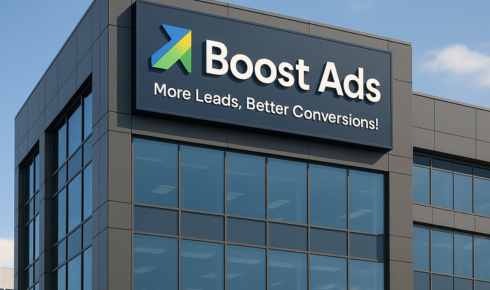Understanding Jacksonville’s Tourism Seasons
Jacksonville experiences seasonal surges in tourism, primarily during spring break, summer vacations, and winter holidays. These spikes bring a flux of potential customers to local businesses, which presents both opportunities and challenges for agencies. A Digital Marketing Agency Jacksonville must strategically pivot its efforts based on these fluctuations to help clients attract seasonal tourists while maintaining relevance to locals.
For instance, during spring break, agencies may tailor content for beach gear retailers or waterfront dining experiences, while summer months may focus on family-oriented attractions like the Jacksonville Zoo or local festivals. The winter season brings snowbirds from colder states, prompting strategies that appeal to longer-term, value-based services like home rentals, medical care, or cultural events.
Crafting Seasonal SEO Campaigns
SEO Service is central to capitalizing on seasonal traffic. Agencies begin by identifying high-volume, time-sensitive keywords through tools like Google Trends or Ahrefs. Terms like “Jacksonville beach hotels summer deals” or “holiday events in Jacksonville” become focal points for on-page optimization.
To execute this strategy:
- Conduct keyword research three months before the season.
- Create landing pages or blog content specifically targeting seasonal searches.
- Update metadata, internal linking, and structured data to match intent.
- Monitor rankings weekly to adapt based on performance.
An example includes creating a dedicated page titled “Top 10 Jacksonville Winter Activities” optimized with schema markup for events and locations, which can improve both visibility and click-through rates.
Utilizing Geo-Targeted Paid Ads
Paid advertising offers immediate visibility, especially useful in short seasonal windows. Geo-targeted Google Ads or social media campaigns can capture the attention of tourists already in the area or planning a trip.
Steps to implement:
- Use geofencing and radius targeting around hotels, beaches, or airports.
- Craft ad copy that speaks directly to tourists (e.g., “Explore Jacksonville’s Hidden Gems Today!”).
- Schedule ads to align with check-in/check-out times or event schedules.
- A/B test ad creatives and landing pages for higher conversion rates.
For example, a local kayak rental company might see significant ROI by targeting mobile users near Jacksonville’s Riverwalk with real-time promotions during spring break weekends.
Leveraging Influencer Partnerships
Partnering with local or travel influencers can drive awareness during peak seasons. These influencers often have engaged audiences seeking recommendations for dining, activities, or accommodations.
Execution steps:
- Identify micro-influencers with audiences that match the target demographic (families, Gen Z travelers, retirees).
- Arrange seasonal content campaigns 1–2 months in advance.
- Encourage them to tag the brand, use seasonal hashtags, and include clear calls to action.
- Track performance through unique promo codes or UTMs.
A Jacksonville food tour company, for instance, could collaborate with a food blogger to document a seasonal tasting experience, encouraging tourists to book their own.
Seasonal Email Marketing Flows
Email marketing remains a powerful retention and promotional tool. Seasonal flows can alert previous visitors about upcoming events, limited-time offers, or guidebooks.
Steps to set up a seasonal email campaign:
- Segment past visitors or customers by season of travel.
- Create visually engaging emails with trip tips, events, or coupons.
- Automate sequences based on time-of-year triggers or engagement.
- Include CTA buttons that lead to custom landing pages.
A resort in Jacksonville might send out a “Countdown to Summer” series in May, offering returning guests early access discounts, updated amenities, or bundled packages.
Optimizing Local Listings for Events
Google Business Profiles, Yelp, and TripAdvisor can drive immense organic traffic when optimized for seasonal offerings. Updating hours, photos, and reviews regularly ensures credibility and discoverability.
To implement:
- Update profiles with seasonal services (e.g., “Holiday Brunch” or “Spring Dolphin Tours”).
- Upload high-quality, relevant photos weekly.
- Encourage satisfied tourists to leave fresh reviews.
- Post regularly to event calendars and use attributes like “popular with tourists.”
A waterfront café might update its listing with weekly live music schedules and photos of seasonal menus, making it more enticing for visitors exploring nearby attractions.
Coordinating Cross-Channel Campaigns
A comprehensive seasonal strategy ties together SEO, ads, social media, email, and PR efforts. Consistency across channels enhances recognition and boosts engagement.
To execute:
- Build a seasonal marketing calendar covering 6–8 weeks pre- and post-peak.
- Align messaging, imagery, and offers across platforms.
- Assign KPIs for each channel to measure and refine.
- Debrief after the season to assess wins and areas of improvement.
For example, during the 4th of July holiday, a Jacksonville tourism board might run a unified campaign called “Red, White & Riverfront” across social media, local publications, search ads, and influencer posts.
Final Thoughts
Successfully navigating seasonal tourism requires a blend of proactive planning, local knowledge, and agile digital strategies. A Digital Marketing Agency Jacksonville that tailors its approach for each seasonal shift not only elevates client visibility but also ensures measurable results in a competitive market. From SEO to influencer outreach, these tactics form a powerful toolkit for capitalizing on Jacksonville’s dynamic tourism economy.


